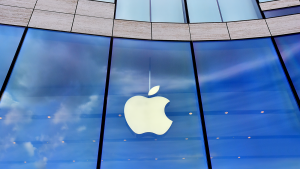3 Virtual Reality Stocks That Could Make Your Grandchildren Rich
Certain big-league technology companies are investing considerable sums of cash in various virtual reality (VR) or augmented reality (AR) initiatives. Though the R&D spend required to build such next-generation technologies has been significant, VR continues to stand out as one of those nascent, unproven technologies that may or may not experience a profound growth spurt.
These days, it seems like few growth investors are convinced VR can deliver a massive boon anytime soon.
As much as VR hardware has improved in past decades, there’s still much work to be done, cords to be cut, and metaverses to be built. For now, PCs are a cheaper and better option for those looking to get work done or play games. This is bound to change in the future once VR headsets become capable enough to be used all day long.
However, it’s unknown when VR will finally take off and leave PCs behind for good. Perhaps VR will have its moment in three years, or maybe it will take three decades. Either way, spatial computers may be the smartphone for our grandchildren’s generation. Here are three ways to play the extremely long-term trend while it’s out of favor.
Disney (DIS)

Disney (NYSE:DIS) is a magical company that’s always testing the limits of modern-day technology. The company has been experiencing massive headwinds of late, and DIS stock seems glued to the tarmac at around $100 per share. Media and streaming have been a treacherous place to operate in these days.
Though impressive, Disney’s parks haven’t been enough to move the needle on the share price just yet. Indeed, the metaverse and VR clearly represent an opportunity to escape a decade-long period of underperformance. With a collaboration with Apple (NASDAQ:AAPL) to bring Disney magic over to Vision Pro, I view Disney as one of the key “passengers” that the iPhone maker and spatial-computing heavyweight could help drive into the future.
All in all, Disney stands out as a great value buy and a hidden VR stock that could benefit greatly from the continued rise of the technology.
Meta Platforms (META)

Meta Platforms (NASDAQ:META) stands proudly behind its metaverse. Though the company has shifted gears to focus a bit more on generative AI of late, I don’t expect Meta to lose track of its metaverse game plan. The company is actively building the metaverse, but the only questions investors seem to want to ask are “when” and “how much the efforts will cost.”
Unfortunately for gain chasers, Meta CEO Mark Zuckerberg sees the metaverse opportunity as one that may take 5-10 years to come to full fruition. That’s a long time to wait for the metaverse to hit the mainstream. And it’s this lengthy time horizon that may have many investors scratching the emerging technology off their radar.
Whether it takes 10 years or closer to 25, META stock stands out as an impressive firm that has a good shot of dominating the metaverse. Undoubtedly, VR bets could take time to pay off, but it’s not like investors won’t be rewarded by Meta’s other businesses. With a major hand in AI and a powerful social-media business, META stock also seems well-equipped to perform in the present.
Apple (AAPL)

Investors are getting excited about AAPL stock again, and the announcement of Apple Intelligence is a major reason for this. However, don’t count Vision Pro as a “dud” of a product yet, especially since the first version of any device isn’t exactly indicative of what the future holds.
Amid rather sluggish demand for its spatial computer, Apple is reportedly pulling the brakes with its second-generation Vision Pro. Instead, Apple is shifting focus to developing a cheaper model, given pricing seems to be a top reason for many users not to buy a Vision Pro. Though Vision Pro 2 is still probably on the table, it’ll probably be a number of years before we get the next massive leap in capability.
I think Apple is smart to concentrate on reducing costs rather than pursuing maximum capability at any price. As the name suggests, perhaps the Vision Pro is more for pro users in the enterprise. Now, Apple must create a device for the rest of us, perhaps at a price point similar to a Macbook Pro.
On the date of publication, Joey Frenette held shares of Disney and Apple. The opinions expressed in this article are those of the writer, subject to the InvestorPlace.com Publishing Guidelines.

